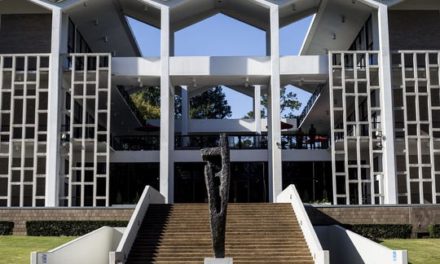Thumbnail: If the Memphis economy is to reboot after the pandemic, the focus needs to be on structural issues that are ice on the wings of the recovery. After the Great Recession, Memphis returned to business as usual and squandered the chance to fundamentally improve the economy. Hopefully, history will not repeat itself.
**
The Covid-19 nightmare continues, and even with a vaccine, that won’t change.
That’s because the economic fallout from the pandemic will dog the Memphis regional economy for years to come.
Coronavirus couldn’t have come at a worse time. The Memphis metro economy was just beginning to show some life again, and we know from the lethargic recovery from the Great Recession how long it takes for our community to bounce back. Following the recession, it had taken eight years for this region to return to pre-Recession levels – it was one of the last in the U.S.
The truth is the cheerleading in the past couple of years about momentum far outstripped the realities of the economy. While there were some exciting major projects, and politicians and economic development were quick to treat them as exemplifying Memphis, the underlying facts of the economy remained problematic.
At this point, there’s not much that can be done to make sure the marquee projects continue. Market conditions and financial forces will determine if they are still possible; however, post-Covid success is likely to be defined largely in whether they get started again rather than in our ability to improve underlying structural weaknesses that have always held back our economic progress.
Troubling Pre-Covid Indicators
Even before coronavirus struck, the Memphis region was ranked #223 among U.S. metros for growth of its Gross Metropolitan Product and the prediction for 2021-22 was 0.2%. At this point, it’s unlikely that we’ll even get back to pre-Covid GMP for several years.
Between 2007-2017, the average jobs growth here was 0.4% when the average jobs growth for regions of our size was 9.1%. Income growth for the 10th to 50th percentile of Memphians is in the negative by double digits.
Half of African American workers are not earning $15 an hour, and that has fallen from 61% in 2000. EDGE only requires a minimum of $13 an hour for companies receiving its tax breaks. Meanwhile, a two-bedroom unit in Memphis requires a job paying $17 an hour.
African American home ownership has dropped from 50% in 2000 to 41%, and 41% is also the percentage of African Americans living in high poverty neighborhoods, compared to 16% for whites.
We say this to make this point: until we address the underlying factors that define the potential of the Memphis economy, we are just pretending in rebooting the economy.
Years To Recover
To say it again, if past is prologue, it will be years before the Memphis region recovers from the era of coronavirus. A five-year recovery is an optimistic prediction at this point.
The time will be particularly hard for City of Memphis whose budgets are taking direct hits, continuing to lose millions of dollars in revenues with the economy barely open.
This was why last week’s push for 700 more police officers in three years was poorly timed and poorly managed. A conservative estimate of the cost of these additional officers is about $50 million…a year after the threshold is reached. Believing this is possible in the next two years meets Coleridge’s definition of “suspension of disbelief.”
There is of course the budgetary context, but this post is about the economic one.
The truth is that mayors have little to do with their cities’ economic success, because so much of it depends on macro factors. While mayors love to announce new companies, even it means giving away $80 million a year in city and county taxes, little of the celebrated $15 billion in new construction investment touted in so many speeches resulted from the budget-draining PILOT programs.
It is fascinating to watch elected officials contort themselves to justify an indefensible tax break program that waives almost $1 billion every 10 years, while at the same time, government services, MATA lacks funding, and schools are underfunded.
Challenging Business As Usual
If there’s ever been a time to reconsider the extravagance of local PILOT programs, you would think it would be now.
While the obscene poverty rate for children – one of the highest in the U.S. – receives well-deserved attention, there are also the hundreds of thousands of men and women who are prisoners of institutional racism that limits opportunity, that treats $13 an hour jobs as a living wage, that subsidizes prominent apartment developers while urban neighborhoods decline, and that looks the other way when local banks won’t finance affordable housing that Memphis needs.
There are committees analyzing the impact of coronavirus, considering how many years it will take for the economy to rebound to pre-pandemic levels, and talking about what we can do to help the economy recover.
But, more than anything, we need to be honest with ourselves and acknowledge that we have squandered past opportunities to recalibrate our economy when we failed to delve beneath the superficial to attack the tough issues that will continue prevent our economy from operating on all cylinders.
Some of these are low wages that make too many job holders vulnerable; the willingness to accept policies that create even more vulnerable jobs; a poverty rate that relegates more than 150,000 Memphians to be merely spectators to economic growth; an acceptance that workers in restaurants, hotels, and retail stores should make less than a living wage; and the belief that there’s nothing we can do to help those who clean up the hospital rooms of Covid-19 patients and care for many when they return home or to nursing and assisted living homes.
Creating a Game-Changer
People’s eyes tend to gloss over when we discuss issues with no easy answers – education and poverty, for example – but there’s no better time to stop glossing over the importance of dealing with the fundamentals.
Decisions made today on the structural issues will determine Memphis’ economic future. They always have, and that’s why the local economy has been underperforming for decades.
The coronavirus will pass at some point, and our challenge is to make sure our community is stronger to compete and succeed in the future. That only happens if we focus our attention
After all, a crisis is a terrible thing to waste.
After the Great Recession, we talked and talked but largely floated into the future. Memphis Mayor A C Wharton Jr. rolled out his Blueprint for Prosperity plan to reduce the poverty rate by 10 points in 10 years; however, he received merely lip service from potential partners like the Greater Memphis Chamber and MLG&W and then the election of Strickland stopped the program in its tracks.
The program had the potential to be a game-changer, but so far, we’ve not heard of anything as ambitious. If Memphis once again simply floats into the future, it will once again have squandered its chance to transform the lives of thousands of Memphians and through them, the economy itself.
**
Join us at the Smart City Memphis Facebook page for daily articles, reports, and commentaries relevant to Memphis.





